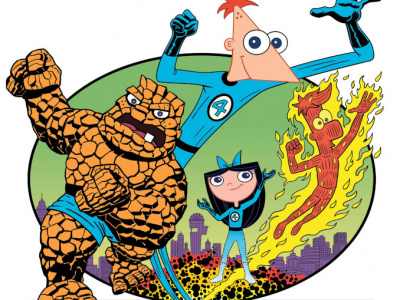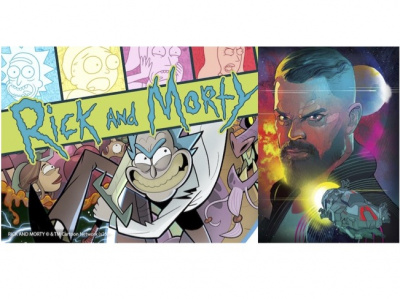Confessions of a Comic Book Guy is a weekly column by retailer Steve Bennett of Mary Alice Wilson's Dark Star Books in Yellow Springs, Ohio. This week, Bennett talks about how to choose additional products to expand the market for a comic store:
Every fast food franchise has a 'core menu', the signature items on which their reputation is based, but no matter how much money is generated by them there's always the temptation to steal new customers from other franchises (and get more money out of old ones) by introducing new items. McDonalds can always generate a temporary sales spike by rolling out pizza, ice cream or deli sandwiches, but there's always the danger of a customer backlash if they deviate too far too fast from the familiar.
And of course a comic shop's core menu is comics and it's true your store could lose its focus and identity if you suddenly start randomly adding new product lines (and it could also start rumors; both your customers and competition can easily interpret the changes as a sign your store is in trouble). But if you're willing to take a chance on increasing your ales and customer base before you take on even returnable merchandise there's a couple of things you should think about...
Consider Your Location
What kind of foot traffic is there in front of your store (if any)? Is there a school or college nearby? Any kind of place where people have to wait (a pizza 'n chicken place, beauty parlor, nail salon, dojo, computer repair store)? If the answer's yes you just might have a captive audience that you can ruthlessly exploit: bored people with money in their pockets willing to spend at least some of their down time in your store. And a lookylou might actually become a customer if you have what they want.
But let's crawl before we walk; have you ever thought about carrying the daily newspaper? Gum? Candy? What about the local free paper (a.k.a. the 'movie listings and bi-curious personal ads')? OK, that one won't generate revenue, but once you become known as 'the place with the free paper' you can count on a certain number of new heads poking their way into your store every week. And hopefully, over time, you'll receive more from them than the surprised declaration 'Gee, I didn't know they still published comic books!'
Consider Your Competition
Find out who sells what within, say, a ten mile radius of your store, and check your local Yellow Pages (or Book or whatever its called in your area). OK, let's say there's an independent bookstore three blocks from your store; you need more information. What's their focus--politics, new age, children's books? If so, they're probably not getting a lot of SF/horror fans - but you might if you start carrying a select number of science fiction and horror paperbacks (at first maybe stick to 'brand name' franchises like Star Trek, Star Wars, etc.).
And that's pretty much all I've got. Even with returnable merchandise new product lines are a gamble and I won't tell you they're not. But I've seen it work and whether it works for you or not, let me know.
Just remember; I'm not suggesting you try and turn your comic shop into a mini-faux Barnes & Borders. Your greatest strength is what makes your store unique from a corporately owned superstore; and if you really want something that'll distinguish yourself and generate word of mouth advertising, get a cat.
Just like Dark Star became 'the store with the bumper stickers' it's also 'the store with the cat' thanks to Bart. He was named after Bart Simpson just as the clan started to appear on The Tracy Ullman Show; we thought it would be an inside joke because, while they were hilarious, the cartoons were just too smart and dark to ever appeal to mainstream America.
I need to stress there's absolutely nothing remarkable about him; he's an ordinary, aged, mid-range short hair black cat. Like most cats he does nothing, but does it so splendidly people regularly come in to say hello to him; he's showered with gifts, has his picture taken and is just generally feted and fussed over like he was a minor local celebrity.
There are times I'm convinced we're not so much a book store as the world's smallest petting zoo. I want to sell the books and comics I love so much, I know I'd dearly like to get through an entire conversation with a customer without being interrupted by a member of his fan club that wants to know 'Where's Bart?' (like I'm ever going to say, 'On break; he's out by the dumpster having a smoke').







